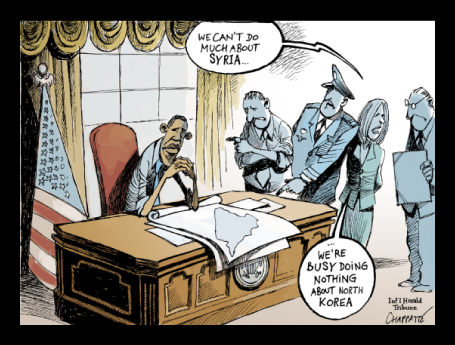
“Some say that street action will produce better results than elections. To be honest, my government and I are deeply skeptical.”
That’s what Anne Patterson, the American ambassador to Egypt, had to say just days before the fall of Mohamed Morsi. Totally out of place, as if her primary goal was to prove diplomats could be everything but candid, she underlined the importance of stability. She also let everyone know that protests “will do little more than add new names to the lists of martyrs.”
Ambassadors should either remain silent or walk in rhythm with the mood on the street. That’s the approach James Pardew took during his ambassador tenure in Bulgaria; the same was true of the envoys of Germany and France.
Conspiracy theory advocates — basically, all Egyptians are part of that group — quickly interpreted Patterson’s words in light of their own political and ideological orientation. Morsi’s opponents — in other words, those who first took to the streets — saw the ambassador’s words as an attempt to make them stay home or prevent them from shaking the convenient foundations of the U.S. (now former) president. Morsi’s proponents interpreted the mention of the word “martyrs” as a sinister warning that an American-supported retribution will follow the coup. At least 50 “Muslim brothers” have been shot by the army at this point.
The choice of wording says a lot, not only in the Middle East. The way Barack Obama’s administration has avoided naming the events in Egypt a coup is almost comical. The reason for the linguistic gymnastics is that reckoning the fall of Morsi as a nondemocratic event would automatically suspend the yearly $1.5 million in aid. The funding goes almost entirely to the Egyptian army, which according to Washington’s standards did a great job getting rid of a democratically elected, but opinionated, Islamist. All else aside, Morsi turned out to be highly incompetent. A former engineer, who completed his studies in California, he failed to revitalize the economy and to make moderate Egyptians believe that he stood behind them as much as he stands behind their ultrareligious compatriots.
Conspiracy theories aside, all signs suggest that U.S. leadership once again slept through the events in the Middle East. Obama, who four years ago in Cairo delivered a brilliant speech meant to reverse anti-American sentiment and create warm feelings, is now not much more popular in the Arab world than his predecessor Bush. The only exception, for self-explanatory reasons, is Libya. On top of that, the president is closely watched by Israel where, he failed to notice, conservative moods have been solidifying for a decade.
All this considered, in its role as political broker the U.S. is in a worse position in the Middle East than it was before Obama took office. It’s no surprise that, aside from carefully supplying Assad’s opponents with arms and equally carefully waiting to see the product of the military-street coup in Cairo, its administration doesn’t dare take more determined action.
The U.S. is “pass” in Turkey and “stalemate” against Iran. This impotency in the region for me is symbolically represented by even the shallowest comparison between Al-Jazeera and CNN. The once-powerful Atlanta-based organization is now captured by the short-term and the temporary instead of what is truly significant. Its U.S. programming focuses on speculations surrounding the plane crash in San Francisco and on the trial against George Zimmerman, who shot a young African-American man, Trayvon Martin, last year. Neither of these events can compete with the developments in Cairo, Istanbul or Damascus in terms of significance. The American public, though, won’t learn that by watching TV.
On the contrary, Al-Jazeera is an active participant in the battle for power taking place between the increasingly insistent emirs in Qatar and the titled puppeteers of the Arab word in Saudi Arabia (who recently took a step back). Already the number one television program in the Middle East, Al-Jazeera has ambitious plans to conquer the U.S. market and a bright prospect of achieving its goal with unprecedented success. Meanwhile, dissatisfied masses around the world have a brand new way of organizing themselves through social media. They have power like never before.
At a time when the world is more and more prone to take to the streets, Americans are staying home.

Leave a Reply
You must be logged in to post a comment.